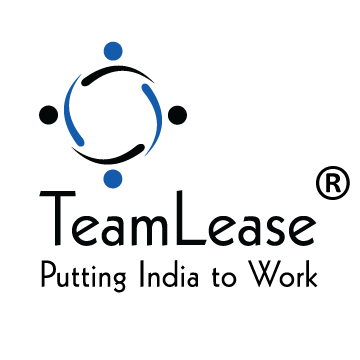The Importance of Diversity and Inclusion: Beyond the C-Suite Directive

“Inclusion is not a matter of political correctness. It is the key to growth.” – Jesse Jackson, Civil Rights Activist. The world of work is constantly evolving. The importance of diversity and inclusion has become essential principles for organisations striving to achieve equitable workplaces. India has ranked 127 out of 146 countries in terms of gender parity – an improvement of eight places from last year – according to the World Economic Forum’s annual Gender Gap Report, 2023.
Leaders agree that an inclusive workplace is essential for employee engagement. However, the interpretation and implementation of inclusivity vary widely among companies. Some companies focus on hiring and retaining a diverse workforce, while others prioritise hosting unconscious bias training or establishing employee resource groups. Some organisations go as far as creating dedicated leadership roles specifically for diversity and inclusion (D&I). Diversity and inclusion have become crucial tenets for organisations striving to achieve equitable workplaces. But the truth is, achieving these two is easier said than done. It requires sustained focus and action at every level of the organisation, not merely a directive from the C-suite.
The importance of diversity and inclusion
Diversity and inclusion in the workplace offer multifaceted benefits:
- Enhancing creativity and innovation: A diverse team brings a wide range of perspectives and experiences, fostering an environment where creative solutions and innovative ideas can flourish.
- Improving employee satisfaction and retention: An inclusive culture makes employees feel respected and valued, leading to higher productivity and loyalty. Conversely, a lack of inclusion can result in high turnover rates and a disengaged workforce.
- Attracting top talent: Job seekers are increasingly prioritising company values and culture. Businesses committed to diversity and inclusion are more likely to attract high-calibre candidates and are perceived as desirable employers.
- Creating awareness and understanding: This training raises awareness and promotes understanding among employees, exploring topics like unconscious bias and cultural competency.
- Fostering inclusive leadership: comprehensive training develops inclusive leadership skills, enabling leaders to champion diversity and inclusion initiatives and create environments where all voices are heard and valued.
- Strengthening team dynamics: Promotes effective communication and collaboration across diverse groups, improving productivity and fostering a sense of belonging and cohesion within the team.
- Mitigating legal and reputational risks: Ensures compliance with anti-discrimination laws and enhances the organisation’s appeal to stakeholders for employee engagement.
The role of diversity training
Diversity training plays a crucial role in establishing an inclusive workplace culture by proactively educating employees across all organisational levels on the significance of diversity and inclusion. This initiative aims to raise awareness and promote understanding among employees, covering topics such as unconscious bias, privilege, microaggressions, and cultural competency. It helps participants grasp their colleagues’ perspectives, fostering more inclusive relationships and cultivating a culture of empathy and respect. Leaders who undergo this training can enhance their ability to champion diversity initiatives, recognize and address biases, foster diverse talent, and create inclusive environments where all voices are valued. Participants also improve team dynamics by learning strategies for effective communication, conflict resolution, and leveraging each member’s strengths, fostering productivity, belonging, and cohesion. Moreover, beyond promoting inclusion, efforts to ensure compliance with anti-discrimination laws help companies avoid costly litigation and protect their brand. A commitment to diversity also enhances appeal to customers, investors, and prospective employees.
While diversity training holds immense potential for driving positive change, its effectiveness hinges on several key factors. Customising training programs to the specific needs and challenges of the organisation ensures relevance and engagement among participants. Viewing diversity training as an ongoing process rather than a one-time event, with follow-up sessions, refresher courses, and continuous learning opportunities, reinforces key concepts and sustains momentum over time. Embedding diversity and inclusion principles into broader talent management processes, such as recruitment, performance evaluation, and leadership development, reinforces their importance and ensures alignment with organisational objectives. Additionally, establishing clear metrics and evaluation mechanisms allows organisations to assess the impact of initiatives and make data-driven decisions for continuous improvement.
Closing inclusivity gap
In an era marked by profound demographic shifts, technological advancements, and global interconnectedness, diversity and inclusion are more crucial than ever. A recent report by LinkedIn and The Quantum Hub highlights that despite an increase in women in senior leadership roles in Corporate India from 16.6% in 2016 to 18.7% in 2023, a decline in their representation in director (20.1%), vice president (17.4%), and C-suite (15.3%) positions. The TeamLease report titled “Consumer Durables & Electronics Report—A Staffing Perspective” highlights a stark gender disparity of 94% male to 6% female. Inclusivity and diversity should not be seen as mere checkboxes or quotas but as fundamental aspects of our humanity.
True inclusivity encompasses not only gender diversity but also the acceptance and integration of people of all races, including the LGBTIQA+ community. By investing in and cultivating inclusive cultures, we can unlock the full potential of our workforce and pave the way for a brighter, more prosperous future.
Are you looking to expand diversity and foster inclusivity within your workforce? Contact us today to get started.
References:
Latest Blogs
How Apprenticeships in India Help Build Job-Ready Talent?
In a fast-evolving job market, businesses across India face a common challenge: finding candidates who are not just qualified on paper but ready to perform...
Read MoreStrategic Workforce Planning in India: Why Smart Talent Strategy is Important?
For years, strategic workforce planning in India was treated as a back-office exercise—something to be revisited when hiring pressure built up or attrition spiked. That...
Read MoreUnion Budget 2026–27 Decoded: What MSMEs and HR Leaders Need to Know
The Union Budget 2026-27, presented on 1 February 2026, signals a deliberate shift toward employment-centric growth, combining sectoral demand creation with long-term investments in skills,...
Read MoreNew Labour Codes: A Compliance Guide for Employers
India’s labour landscape has entered a historic transition with the notification of the four consolidated Labour Codes—the Code on Wages (2019), Industrial Relations Code (2020),...
Read MoreNew Labour Laws India 2025: Comprehensive FAQ for Employers & Employees
You didn’t come here for a summary of the new labour laws India. You’re here to gain clarity on what applies to you and the...
Read More





